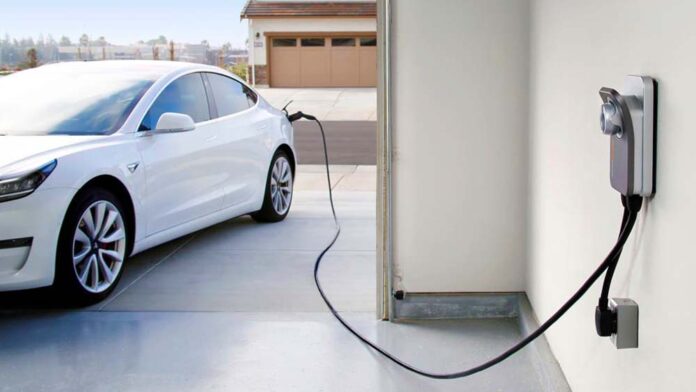According to the Finance Act 2023, electric vehicles (EVs) with a value of Rs 50 lakhs or more will be subject to an advance tax of 3% at the time of registration. This is because though the Act does not explicitly delineate tax rates for EVs, it does stipulate that vehicles devoid of engine capacity and possessing a value of Rs 50 lakhs or more will be taxed at a rate of 3%. This is a detail that might be overlooked by many when perusing the Finance Act if they are unfamiliar with the world of Pakistani automotives.
Mian Shoaib, Chairman of the All Pakistan Car Dealers and Importers Association, has expressed consternation about this new tax. He articulates, with palpable frustration, that “Excise departments throughout Pakistan determine registration fees for EVs based on the power of the battery in KWH. There is no justification for imposing a 3% advance tax on them.” He further adds, “On one hand, the government is incentivising EVs by imposing less customs duty, but on the other hand, levying this tax will escalate the cost for consumers. Ultimately, this will dissuade the usage of EVs.”
The intricacies of vehicle value determination
The value of a vehicle is ascertained by its import value, invoice value, or auction value, contingent upon whether it was imported, locally manufactured or assembled, or auctioned. In cases where the engine capacity is inapplicable and the value of the vehicle is Rs 50 lakhs or more, the tax rate will be 3% of the import value as augmented by customs duty, sales tax, and federal excise duty in case of imported vehicles or invoice value in case of locally manufactured or assembled vehicles
How much more expensive will our favourite electric cars get?
Needless to say, with the new 3% advance tax on EVs with a value of Rs 50 lakhs or more, some of the most coveted cars currently in Pakistan will be subject to the registration tax. Profit went ahead, and calculated it for some of the more widely available ones in Pakistan.
| Make | Model | Ex-Factory Price | Registration Tax |
| BMW | 7 Series i7 | Rs 17.7 crore | Rs 53.1 lakhs |
| BMW | iX3 M Sport | Rs 9.9 crore | Rs 29.7 lakhs |
| Audi | e-tron GT RS | Rs 8.1 crore | Rs 24.3 lakhs |
| BMW | iX xDrive50 | Rs 7.6 crore | Rs 22.8 lakhs |
| BMW | iX xDrive40 | Rs 7.3 crore | Rs 21.9 lakhs |
| BMW | i4 M50 | Rs 6 crore | Rs 18 lakhs |
| Audi | e-tron GT Standard | Rs 5.8 crore | Rs 17.4 lakhs |
| BMW | i4 eDrive40 | Rs 5.1 crore | Rs 15.3 lakhs |
| Audi | e-tron 55 Quattro | Rs 5.1 crore | Rs 15.3 lakhs |
| Audi | e-tron 50 Quattro Sportback | Rs 4.4 crore | Rs 13.2 lakhs |
| Audi | E-tron 50 Quattro | Rs 4.3 crore | Rs 12.9 lakhs |
Why is the Government doubling down on vehicle registration taxes?
The government has introduced new rates for advance tax on vehicle registration as part of the revised budget ratified on June 26th. These are part of the staggering Rs 94.15 arab that the government plans to accrue through the Federal Board of Revenue this fiscal year. The revised rates for advance tax on vehicle registration for vehicles with combustible engines are as follows:
| Engine Displacement | Registration |
| Up to 850cc | Rs10,000 |
| 851cc to 1000cc | Rs20,000 |
| 1001cc to 1300cc | Rs25,000 |
| 1301cc to 1600cc | Rs50,000 |
| 1601cc to 1800cc | Rs1.5 lakh |
| 1801cc to 2000cc | Rs2 lakh |
| 2001cc to 2500cc | 6% of the value |
| 2501cc to 3000cc | 8% of the value |
| Above 3000cc | 10% of the value |




